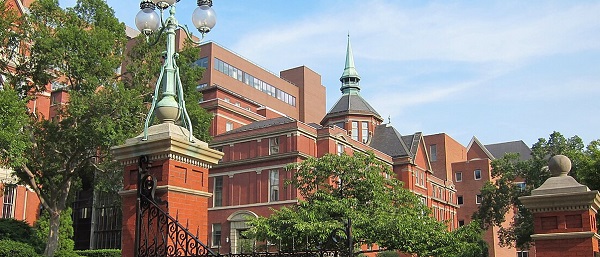Education
Red Deer Public values LGBTQ+ students, staff and families

The Board of Trustees of Red Deer Public Schools reaffirms its unequivocal support and commitment to LGBTQ+ students, staff and families.
Last month the Board voted against having a Division-wide Pride Week and voted in favour of having a Diversity Week understanding we are “Open to All”, recognizing our Division must be respectful and supportive of each diverse group and individual. The decision arrived at by the Board on Diversity Week is now in the hands of the Superintendent of Schools to move forward on implementation, working closely with our schools and the community to make this valued and meaningful.
Since then, the Board has received and appreciated many and a wide range of comments and opinions on the decisions. The decisions have also been part of discussions at School Council and City Wide School Council meetings.
During the Board’s meeting March 10, Trustees and Senior Administration heard four presentations from individuals requesting to share perspectives. As provided within policy, the Board chose to hear those presentations during its private meeting.
Following those presentations and discussion among Trustees, the Board reaffirmed its commitment to have a Diversity Week. The Board will not reconsider its decision on Pride Week.
Following their deliberations, all Trustees support the following motion to review the Board’s Sexual Orientation and Gender Identity Policy, which has already received strong endorsement from champions of the LGBTQ+ community:
● The Board of Trustees directs the Superintendent of Schools to undertake a review of Board Policy 19 – Sexual Orientation and Gender Identity and report to the Board.
Throughout all deliberations on these motions, Trustees, both individually and collectively showed genuine care, understanding and full support for LGBTQ+ students, staff and community. The Board of Trustees fully expects that our schools are safe and respected places for all students and staff. We recognize the true challenges faced by the LBGTQ+ community and that Red Deer Public must continue to prioritize this work.
Included within the current SOGI Policy is the provision for schools to have events and activities to support members and allies of the LGBTQ+ community. This already includes the ability for schools to host Pride weeks and events. Some schools, in response to this opportunity, are undertaking plans to do so this year.
The Board’s intention in approving the review of an already strong policy is to ensure the policy is highly responsive to the challenges and opportunities of the LGBTQ+ community within school communities.
Education
Johns Hopkins University Announces Free Tuition For Most Students


From the Daily Caller News Foundation
Johns Hopkins University (JHU) announced on Thursday it is making tuition free for families earning less than $200,000 and will waive both tuition and living expenses for those making less than $100,000.
The university stated that “a majority of American families” will qualify for the fee exemption, allowing most students to attend without contributing a single dollar. The decision is meant to help recruit “the best and brightest students to Johns Hopkins irrespective of their financial wherewithal.”
“Trying to understand financial aid offers can be overwhelming,” David Phillips, vice provost for admissions and financial aid at JHU, said in the announcement. “A big goal here is to simplify the process. We especially want to reach students and families from disadvantaged backgrounds, rural locations, and small towns across America who may not know that a Hopkins degree is within reach.”
Dear Readers:
As a nonprofit, we are dependent on the generosity of our readers.
Please consider making a small donation of any amount here.
Thank you!
In 2018, Michael Bloomberg donated nearly $2 billion to the university, the largest ever single gift to a U.S. university. JHU said it used this money “to become permanently need blind and no-loan in financial aid.”
The university also receives the most federal funding of any university, raking in more than $3 billion from the government in fiscal year 2023 for research and development alone. This is more than double what the next highest recipient of federal funding that year, the University of Washington, received.
Despite this, JHU in June complained that federal funding cuts forced it to institute a hiring freeze and pause annual pay increases for employees. In its message to the community at the time, the university also mentioned its disagreement with “recent efforts to limit or withhold visas from the international students and scholars.”
Some universities admit mass numbers of foreign students in order to pad their pockets, as such students often pay full tuition and fee costs without financial assistance.
Education
Why classroom size isn’t the issue teacher unions think it is

This article supplied by Troy Media.
The real challenge is managing classrooms with wide-ranging student needs, from special education to language barriers
Teachers’ unions have long pushed for smaller class sizes, but the real challenge in schools isn’t how many students are in the room—it’s how complex those classrooms have become. A class with a high proportion of special needs students, a wide range of academic levels or several students learning English as a second language can be far more difficult to teach than a larger class
where students are functioning at a similar level.
Earlier this year, for example, the Elementary Teachers’ Federation of Ontario announced that smaller class sizes would be its top bargaining priority in this fall’s negotiations.
It’s not hard to see why unions want smaller classes. Teaching fewer students is generally easier than teaching more students, which reduces the workload of teachers. In addition, smaller classes require hiring more teachers, and this amounts to a significant financial gain for teachers’ unions. Each teacher pays union dues as part of membership.
However, there are good reasons to question the emphasis on class size. To begin with, reducing class size is prohibitively expensive. Teacher salaries make up the largest percentage of education spending, and hiring more teachers will significantly increase the amount of money spent on salaries.
Now, this money could be well spent if it led to a dramatic increase in student learning. But it likely wouldn’t. That’s because while research shows that smaller class sizes have a moderately beneficial impact on the academic performance of early years students, there is little evidence of a similar benefit for older students. Plus, to get a significant academic benefit, class sizes need to be reduced to 17 students or fewer, and this is simply not financially feasible.
In addition, not only does reducing class sizes mean spending more money on teacher compensation (including salaries, pensions and benefits), but it also leads to a decline in average teacher experience and qualifications, particularly during teacher shortages.
As a case in point, when the state of California implemented a K-3 class-size reduction program in 1996, inexperienced or uncertified teachers were hired to fill many of the new teaching positions. In the end, California spent a large amount of money for little measurable improvement in academic performance. Ontario, or any other province, would risk repeating California’s costly experience.
Besides, anyone with a reasonable amount of teaching experience knows that classroom complexity is a much more important issue than class size. Smaller classes with a high percentage of special needs students are considerably more difficult to teach than larger classes where students all function at a similar academic level.
The good news is that some teachers’ unions have shifted their focus from class size to classroom complexity. For example, during the recent labour dispute between the Saskatchewan Teachers’ Federation (STF) and the Saskatchewan government, the STF demanded that a classroom complexity article be included in the provincial collective agreement. After the dispute went to binding arbitration, the arbitrator agreed with the STF’s request.
Consequently, Saskatchewan’s new collective agreement states, among other things, that schools with 150 or more students will receive an additional full-time teacher who can be used to provide extra support to students with complex needs. This means that an extra 500 teachers will be hired across Saskatchewan.
While this is obviously a significant expenditure, it is considerably more affordable than arbitrarily reducing class sizes across the province. By making classroom complexity its primary focus, the STF has taken an important first step because the issue of classroom complexity isn’t going away.
Obviously, Saskatchewan’s new collective agreement is far from a panacea, because there is no guarantee that principals will make the most efficient use of these additional teachers.
Nevertheless, there are potential benefits that could come from this new collective agreement. By getting classroom complexity into the collective agreement, the STF has ensured that this issue will be on the table for the next round of bargaining. This could lead to policy changes that go beyond hiring a few additional teachers.
Specifically, it might be time to re-examine the wholesale adoption of placing most students, including those with special needs, in regular classrooms, since this policy is largely driving the increase in diverse student needs. While every child has the right to an education, there’s no need for this education to look the same for everyone. Although most students benefit from being part of regular academic classes, some students would learn better in a different setting that takes their individual needs into consideration.
Teachers across Canada should be grateful that the STF has taken a step in the right direction by moving beyond the simplistic demand for smaller class sizes by focusing instead on the more important issue of diverse student needs.
Michael Zwaagstra is a senior fellow with the Frontier Centre for Public Policy.
Troy Media empowers Canadian community news outlets by providing independent, insightful analysis and commentary. Our mission is to support local media in helping Canadians stay informed and engaged by delivering reliable content that strengthens community connections and deepens understanding across the country
-

 Alberta7 hours ago
Alberta7 hours agoNational Crisis Approaching Due To The Carney Government’s Centrally Planned Green Economy
-

 COVID-1920 hours ago
COVID-1920 hours agoNew report warns Ottawa’s ‘nudge’ unit erodes democracy and public trust
-

 Agriculture8 hours ago
Agriculture8 hours agoFederal cabinet calls for Canadian bank used primarily by white farmers to be more diverse
-

 Great Reset6 hours ago
Great Reset6 hours agoCanadian government forcing doctors to promote euthanasia to patients: report
-

 Crime2 days ago
Crime2 days agoHow Global Organized Crime Took Root In Canada
-

 Energy2 days ago
Energy2 days agoExpanding Canadian energy production could help lower global emissions
-

 Business2 days ago
Business2 days agoThe numbers Canada uses to set policy don’t add up
-

 COVID-1924 hours ago
COVID-1924 hours agoFreedom Convoy protestor Evan Blackman convicted at retrial even after original trial judge deemed him a “peacemaker”






